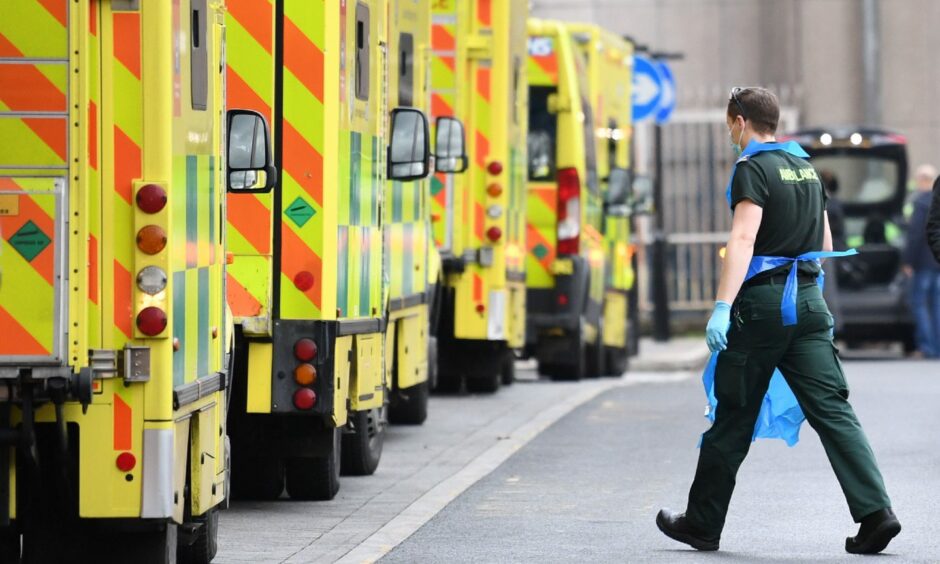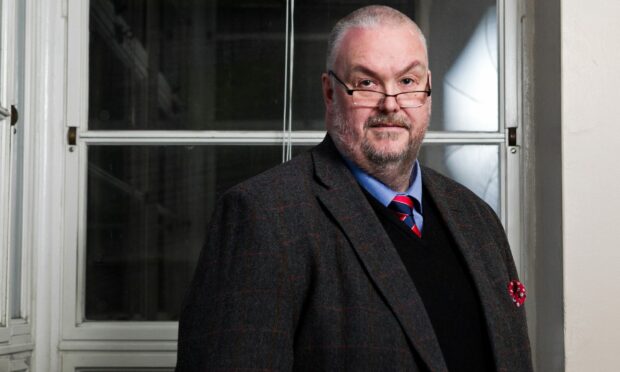The former chief of NHS Scotland warns the public could be asked to “pay quite a lot more tax” unless the government radically reforms the under-pressure health service.
Paul Gray, who served in the role from 2013-19, says the health and care service in Scotland is “overwhelmed” and cannot meet current and emerging demands.
In our interview, he claims that if radical reform does not happen, governments could decide the public should pay more tax to “build up” the current system.
He also warns that unless changes are made, waiting times will not improve and health outcomes for patients will not be “as good as they could be”.
The former NHS boss adds there needs to be a “transparent and rational discussion” on the role of private healthcare and that “people need to be open to the thought that there may more they (the private sector) could offer”.
‘Plea to think differently’
Mr Gray is clear he does not want his call for “fundamental reform” of the system to come as criticism to either staff in the service or politicians but rather a “plea to think differently”.
He believes the NHS was always going to be “overwhelmed” without reform and that the coronavirus pandemic has “simply brought the date of that event forward”.
The former civil servant says the situation is not unique to Scotland and that “most health services in the developed world are under pressure”, with the situation even more acute in less developed nations.
He adds: “The intersection of the pandemic, demographics and demand have created problems quite widely.”
In terms of how fundamental reform should be approached, Mr Gray says it comes down to investing more in community care to prevent the situation where people must enter hospital for treatment.
He admits to asking himself if he “should have done more” when he was in the top job, to which he said “the answer to that is yes”.
But the former chief executive said those in control – both civil servants and politicians – are “always being pushed for solutions of today even although these might not be the best solutions for the long-term”.
Mr Gray: “I wish I put more emphasis on community care and prevention.
“My plea is we don’t focus solely on immediate interventions otherwise we will simply be keeping a creaking system going rather than reforming it to what we need.”
What next for a National Care Service?
Reform is already happening in some quarters with moves already being made to change the way care is delivered in Scotland.
A consultation was launched last month on plans to create a National Care Service, in what has been described by Nicola Sturgeon as a “fitting legacy from the trauma of Covid-19”.
The announcement is one the former NHS chief welcomes as “recognition that there is some need for system-led change”.
But he adds he would “counsel against assuming the creation of National Care Service is the complete solution” and is concerned it “becomes an argument between different bits of the public realm”.
Private healthcare could play greater role
Despite previously heading up the NHS, Mr Gray said “pretending that the private sector cannot or should not have a role has no basis in current fact”.
He points to those health professionals who work both privately and in the NHS and stresses that the private sector also provides “equipment, gas, electricity, vehicles, technology and buildings”.
“There needs to be a rational discussion about the role they do play and people need to be open to the thought that there may be more that they could offer”, he adds.

“That doesn’t need to be a patient-facing activity. Politically for some that’s a bridge too far and I would understand that.
“But equally trying to force the private sector into everything is not a good answer.
“What I’m asking for is we simply take a balanced approach to these things and at least demonstrate willingness to discuss it.”
NHS Recovery Plan
A Scottish Government spokesman said the pandemic has been the “most significant challenge the NHS has ever faced in its 73-year history”.
He added: “We know that the pandemic is not over, and that Covid-19 and other pressures will continue to impact the NHS for some time.
“Our NHS Recovery Plan sets out commitments over the next five years, backed by over £1 billion of funding, to support an increase in inpatient, daycase, and outpatient activity to address backlogs, which will be supported by the implementation of sustainable improvements and new models of care.”
“This includes our commitment to deliver a National Care Service by the end of this parliament in order to help improve the provision and consistency of care services across Scotland.”


